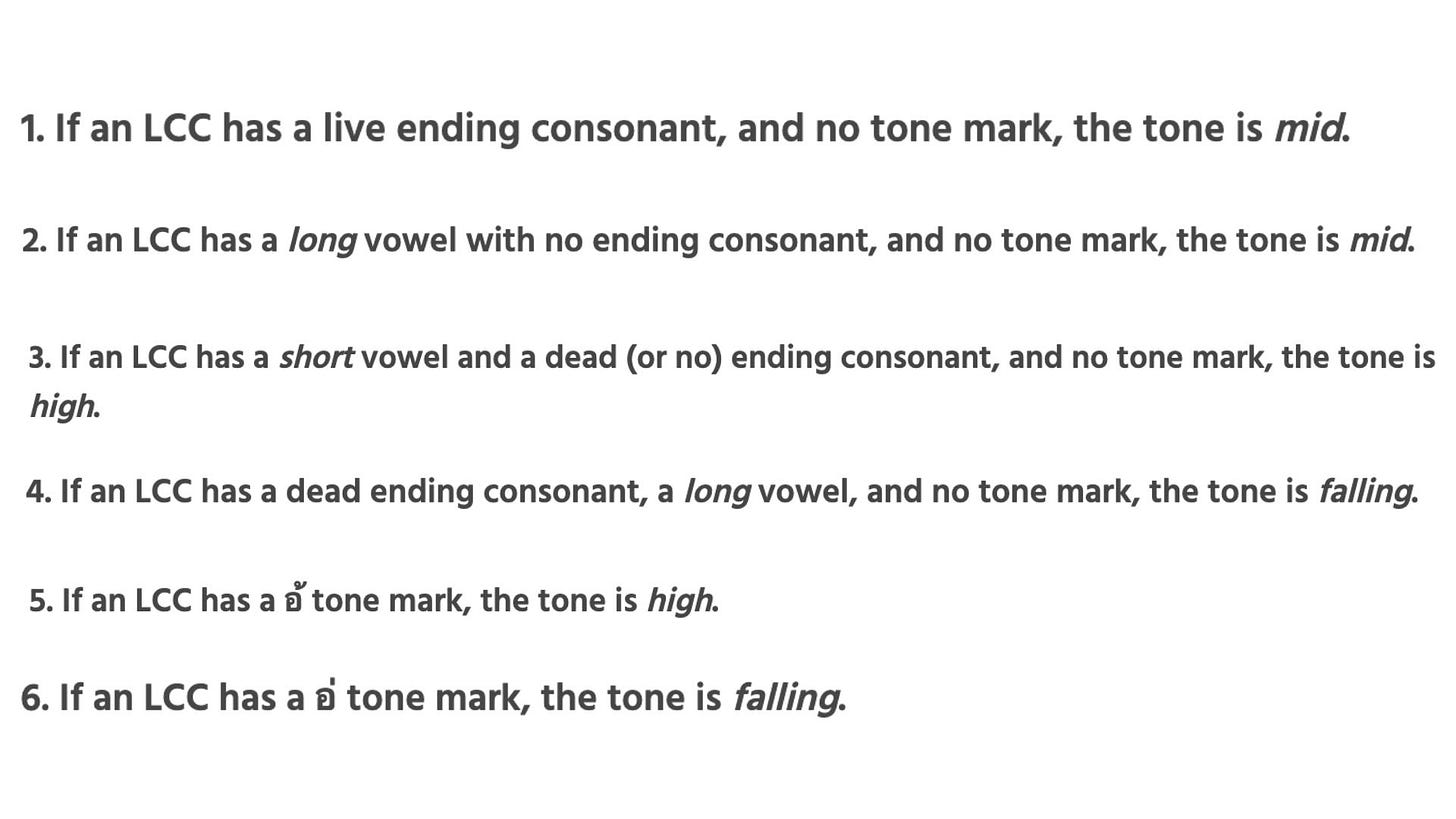How I (Maybe) Learned Thai in one Week (and Nearly Prevented an Intergalactic War) - PART 1
A Linguistic Thriller - Part 1 (out of 3)
On November 17th I saw a post from a man named Koby F. in my Facebook feed. The post read:
“There is a Thai man hospitalized in the Sheba hospital. He was in one of the kibbutzim on October 7th, hid in the barn for 24 hours, then ran for many kilometers until he got to the center of the country. He suffered serious burns. He doesn’t speak any English or Hebrew. Nobody comes to visit him and he is lonely. Most Thai people left the country. My wife and I visited him today but he could use more company. If you speak Thai or know someone who does and could visit him, maybe help him communicate with the hospital staff, or even just sit and listen to him, please share it with them.”
Attached was a photo of a Thai man sitting on a hospital bed, both his legs and one arm bandaged. A Thai woman was standing next to his bed, probably Koby’s wife.
Something clicked in my head. And I knew that click.
The last time I heard that click was a few months ago when someone posted that their cleaning lady was looking for more work, but the problem was that she only spoke Georgian, so communication was difficult. It was the first time in my life that I felt a desperate need to hire a cleaning lady. Just so I would have no choice but to learn Georgian to communicate with her.
But I didn’t actually need a cleaning lady so I had to ignore the click and get on with my life.
This time around it was harder to ignore it.
A quick search revealed that Thai has five tones and its own writing system but that beyond that the language is pretty easy. Verbs don’t have special forms for past and future tense like they do in Spanish, and nouns don’t change for plural like they do in English. So you say things like “I-eat-14-cookie-last-night” and it’s clear to everyone how many cookies you ate and when because of the additional words in the sentence.
Nothing that I couldn’t master in a week.
Nothing I haven’t done before either. Last month I learned Finnish, not fluently but enough to be able to understand (some) children’s cartoons.
And once a long time ago I learned French in four weeks when I was invited to a job interview at a French-speaking university.
Granted, Thai was not French, but a casual conversation was not the same as a job interview.
I decided to do a very crazy thing and text Koby. I said: “I speak basic Thai. I’m not sure I’ll be able to help him communicate with the staff, but I can come and talk to him a little bit. Will it be helpful?” It was a lie, but I knew that if need be it wouldn’t be a lie by the time I got there.
I was sure Koby would say “Thank you but we already have too many people visiting him.” His post was shared seven thousand times. Surely they found enough Thai speakers by now. This is what happens in Israel all the time these days. People are so eager to give, that the minute someone posts a call for volunteers, 10 minutes later they have filled that need. There are long waiting lists of people wanting to do evacuee laundry, deliver homemade food to soldiers, walk reservist’s dogs, and lead art workshops for traumatized kids from the South.
I was sure he’d say ‘no thank you’ but I was hoping (and dreading) he’d say ‘yes.’
If I be honest, I’ve always dreamed of finding myself in a situation where my ability to learn languages fast could prove practically useful. For instance, if an alien ship lands on Earth and the aliens are screaming and wielding their sword-like arms and nobody understands them but the whole world is getting ready for an intergalactic war, and then at the last moment I show up, spend a few days with these guys, learn their language, and finally figure out that all they’re saying is “How do we get to Jupiter?”
The planet is saved, all thanks to me.
Like that.
I texted Koby on Friday morning and then logged off for Shabbat (as many people do here). When I logged back into FB on Sunday (the first day of the week in Israel), I saw a message from him sent the night before: “Yes.”
It was 12:30 pm.
I canceled all my commitments for the next few days.
I spent the next few hours doing what I always do when I begin learning a new language: wasting valuable time and energy on useless stuff.
The main problem with learning a language (any language) is the lack of good resources. If they do exist, you have to do a lot of digging to find them. 95% of the time, the first thing that comes up is ‘resources’ developed by people who have no idea what they’re doing.
In the first YouTube video that looked promising, the woman taught me how to write each letter and the sound it makes (helpful) but also the name of each letter. She said it’s really important to memorize the name of each letter because that will make it easy for me to ask someone how to spell the word. Good thing I didn’t listen to her. I’ve been learning Thai for three weeks now and I haven’t had to ask someone how to spell a word even once.
The second problem when learning a language is the weird terminology used by each language. I hope that someday there will be an international law stating that all language-learning resources must be developed by actual linguists and that everything else will be punishable by death.
For instance, another video told me that Thai words have something called ‘dead ending’ and ‘live endings.’ (Terrifying). On a closer examination though it turned out that we’re talking about clearly defined and well-known classes of sounds. ‘Live syllables’ are simply those that end in a long vowel or a consonant like m, n, l, y (these are called ‘sonorants’ by linguists and they’re consonants you can ‘sing’). And a ‘dead syllable’ is a syllable that ends in a short vowel or a consonant like p, t, k, f, b, z (sounds you cannot ‘sing’, called ‘obstruents’.)1
Not just that. It turned out that Thai consonants can be ‘low class’, ‘middle class’, or ‘high class’. I still don’t know what this means (the letters ฉ and ช both make the sound ch but one is considered ‘high class’ and the other one ‘low class’) but all it makes me think of is an unequal society.
Supposedly, all this information taken together, will tell you the tone of each syllable (low, mid, high, rising, falling). All you need to do is memorize an easy set of rules of the following kind. (LCC stands for ‘low-class’ consonant. Meaning there is a similarly insane set of rules for ‘middle-class’ and ‘high-class’ consonants.)

No wonder people think learning a new language is impossibly hard. Because if looking at this doesn’t make you clinically depressed, I don’t know what does.
I assure you, Thai toddlers learning how to speak don’t go and check the socioeconomic status of each consonant before venturing to say they need to go poo-poo.
Anyway, this is what I did on my first day of learning Thai. By the time my kids got home from school at 15:30 I had:
1) cluttered my head with a bunch of useless terminology
3) mastered most of the writing system
4) understood that it’s completely useless when learning the tones, especially if you don’t know what the different tones are supposed to sound like.
5) fully accepted that Day One was wasted.
I didn’t tell anyone what I was doing. I wanted an escape route. If I failed, the world wouldn’t have to know.
If people noticed that I was a bit spaced out that week, they thought it was because I read the news too much.
(Although at some point my teenager saw me watching “25 most useful phrases to learn in Thai” and scolded me for not being able to stick to one language for more than a month.)
I did tell my therapist. I wanted to make sure that what I was doing was morally ok. Was I taking advantage of this horrible situation to improve my language skills or something? Or was I genuinely trying to be helpful? She said it’s okay to both want to help and want to improve at something.
I eventually did find a human-friendly way to learn the five tones bypassing the writing system. On Monday when I felt there was a sliver of hope that I might be able to do it after all, I texted Koby F: “I will come next Sunday.”
“Great.” He replied. “He is on the third floor. Burn Unit. Room number eleven. His name is Somchai.2”
More precisely, sonorants are produced with continuous, non-turbulent airflow. That’s why z even though you can hold it for a long time is not a sonorant: because your tongue is creating enough obstruction in your mouth to make the airflow non-continuous. Nasals like n and m are sonorants because the air escapes freely through your nose (unless you’re congested in which case, according to his Thai teacher, the ending will be presumed dead.)
I changed his name and location. Please don’t go looking for Somchai.
This is called a CLIFFHANGER, people. That means I’m leaving you hanging on a cliff until next time because I’m worried that on flat terrain, you’ll just unroll your sleeping bag and fall asleep before you get to the most interesting part of the story.




Tan’ka, it reads like a part of a book. You have to write one some day:)
And it really holds me in suspense, even though I know the rest of the story:)
Thank God I didn't even attempt to learn the written language or gramma. Those grammatical rules you included here would definitely give me anxiety if not depression!